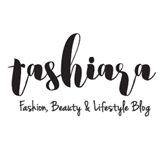Bakuchiol vs. retinol: which is better for your skin?

In the ever-evolving world of skincare, two ingredients have garnered significant attention for their anti-aging properties: Bakuchiol and Retinol. While Retinol has long been hailed as the gold standard in skincare, Bakuchiol, a plant-based alternative, is quickly gaining popularity. But which one is better for your skin? Let's dive into a detailed comparison to help you make an informed decision.
What is Retinol?
Retinol, a derivative of Vitamin A, has been a staple in skincare for decades. It is known for its powerful ability to accelerate cell turnover, stimulate collagen production, and reduce the appearance of fine lines and wrinkles. Retinol also helps to even out skin tone, fade hyperpigmentation, and unclog pores, making it a versatile ingredient for various skin concerns.
What is Bakuchiol?
Bakuchiol is a natural compound extracted from the seeds and leaves of the Psoralea corylifolia plant, commonly known as Babchi. It has been used in traditional Ayurvedic and Chinese medicine for centuries. Bakuchiol has recently gained recognition in the skincare industry for its ability to mimic the effects of Retinol without the associated side effects.
Comparing Benefits: Bakuchiol vs. Retinol
1. Anti-Aging Properties: Both Bakuchiol and Retinol are highly effective in combating signs of ageing. They boost collagen production, which helps to reduce the appearance of fine lines and wrinkles. Studies have shown that Bakuchiol can deliver similar anti-aging benefits to Retinol, making it a compelling alternative for those seeking natural skincare options.
2. Skin Sensitivity: One of the main drawbacks of Retinol is that it can cause irritation, redness, and peeling, especially for those with sensitive skin. Bakuchiol, on the other hand, is much gentler on the skin. It does not cause the same level of irritation and is suitable for all skin types, including sensitive and acne-prone skin.
3. Sun Sensitivity: Retinol increases the skin's sensitivity to the sun, which can lead to a higher risk of sunburn and sun damage. Users are often advised to apply Retinol products at night and use sunscreen during the day. Bakuchiol does not make the skin more sensitive to the sun, making it a safer option for daytime use.
4. Acne Treatment: Retinol is well-known for its acne-fighting properties. It helps to unclog pores, reduce inflammation, and prevent breakouts. While Bakuchiol also has anti-inflammatory and antibacterial properties, it may not be as potent as Retinol in treating severe acne. However, its gentler nature makes it a suitable option for those with mild to moderate acne or for maintaining clear skin.
5. Skin Tone and Texture: Both Bakuchiol and Retinol can improve skin tone and texture. They promote cell turnover, which helps to fade dark spots, hyperpigmentation, and improve overall skin radiance. Bakuchiol's gentle exfoliating properties make it a great choice for those who experience irritation from traditional Retinol.
Bakuchiol vs. Retinol Comparison
| Aspect | Bakuchiol | Retinol |
|---|---|---|
| Source | Plant-derived (from Babchi seeds) | Synthetic or animal-derived (Vitamin A derivative) |
| Skin Benefits | Reduces fine lines, improves skin texture, boosts collagen production | Reduces wrinkles, improves acne, enhances skin turnover |
| Irritation Potential | Low | High (can cause redness, peeling) |
| Sun Sensitivity | Does not increase sun sensitivity | Increases sun sensitivity, requires sunscreen |
| Suitable for Sensitive Skin | Yes | Not ideal for very sensitive skin |
| Best for | All skin types, including sensitive and acne-prone skin | Aged skin, acne-prone skin, targeting advanced signs of ageing |
| Usage Frequency | Can be used daily, AM and PM | Typically used at night, 2-3 times per week to start |
| Age Group Suitability | Safe for all age groups, including younger individuals | Best for individuals aged 25+ with specific skin concerns |
How to Choose the Right Ingredient for Your Skin
When deciding between Bakuchiol and Retinol, consider the following factors:
- Skin Type: If you have sensitive or easily irritated skin, Bakuchiol may be the better choice due to its gentle nature. For those with resilient skin, Retinol can provide powerful anti-aging and acne-fighting benefits.
- Skin Concerns: Identify your primary skin concerns. If you are primarily focused on anti-aging, both ingredients are effective. For severe acne, Retinol may be more beneficial, while Bakuchiol is excellent for overall skin health and mild acne.
- Lifestyle: If you spend a lot of time in the sun, Bakuchiol's non-photosensitising nature makes it a safer option for daytime use.
Incorporating Bakuchiol and Retinol into Your Skincare Routine
Regardless of which ingredient you choose, it's essential to introduce it gradually into your skincare routine. Start with a lower concentration and gradually increase the frequency of use as your skin builds tolerance. Always follow up with a moisturiser to keep your skin hydrated and balanced.
Conclusion
Bakuchiol and Retinol both offer impressive benefits for your skin, making it challenging to declare a definitive winner. The choice ultimately depends on your skin type, concerns, and personal preferences. If you are seeking a natural, gentle alternative to Retinol with comparable anti-aging benefits, Bakuchiol is an excellent option. However, if you are looking for a potent solution for severe acne and advanced signs of ageing, Retinol remains a powerful and effective choice.
Experiment with both ingredients to see which one works best for your skin, and enjoy the journey to healthier, more radiant skin.











